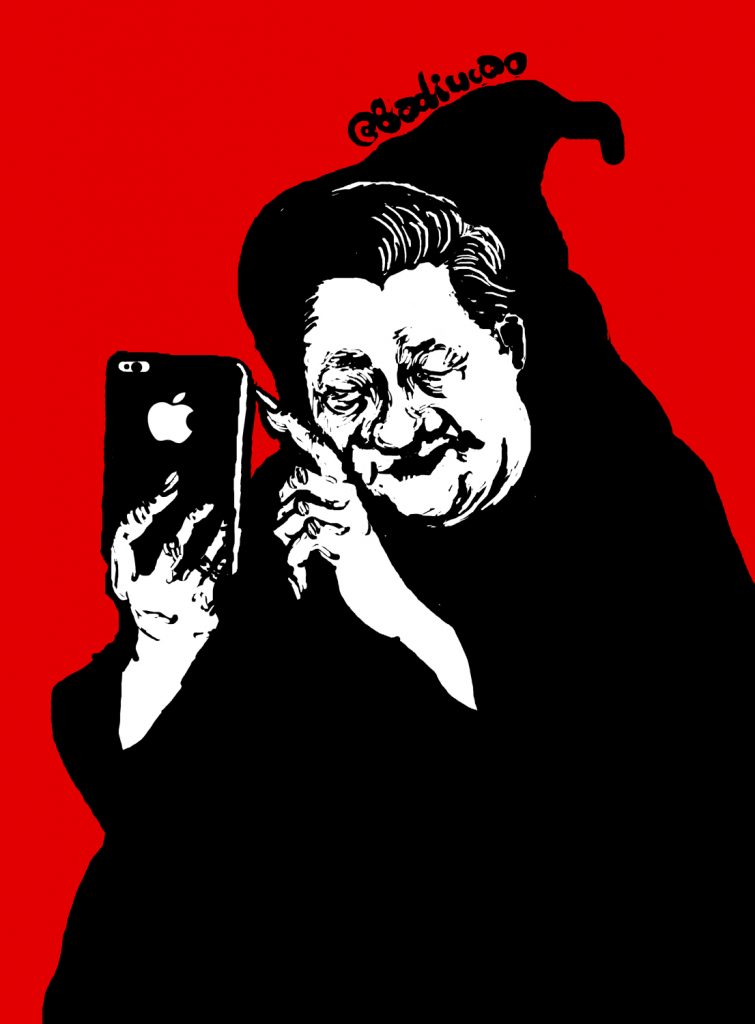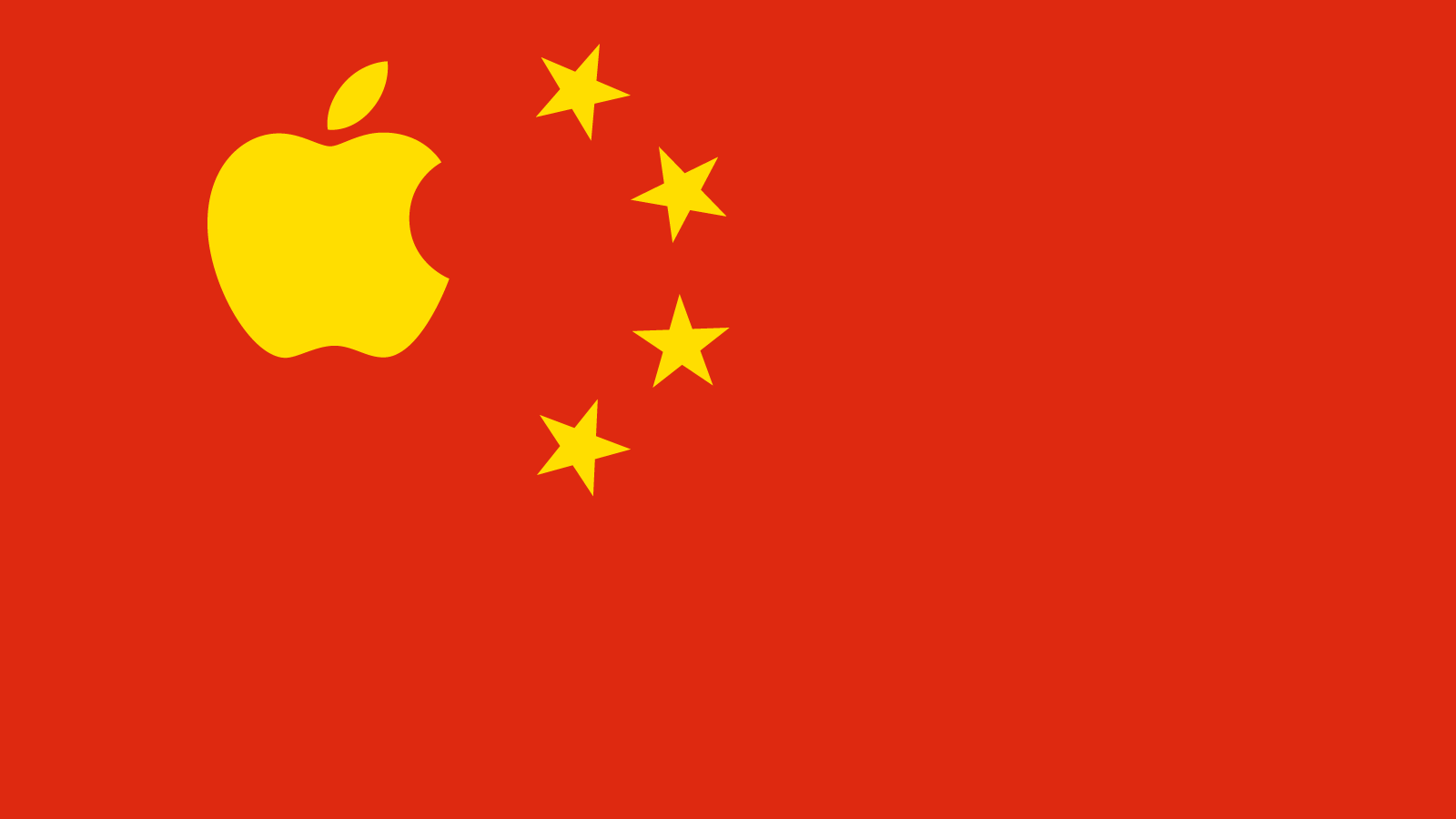By Simon Denyer

BEIJING — Reading headlines from the World Internet Conference in China, the casual reader might have come away a little confused.
China was opening its doors to the global Internet, some media outlets optimistically declared, while others said Beijing was defending its system of censorship and state control.
And perhaps most confusing of all, Apple’s CEO Tim Cook stood up and celebrated China’s vision of an "open" Internet.
Say what?
China has more than 730 million Internet users, boast the largest e-commerce market in the world, and consumers who enthusiastically embrace mobile digital technology.
And perhaps most confusing of all, Apple’s CEO Tim Cook stood up and celebrated China’s vision of an "open" Internet.
Say what?
China has more than 730 million Internet users, boast the largest e-commerce market in the world, and consumers who enthusiastically embrace mobile digital technology.
But it censors foreign news websites and keeps Western social media companies out.
The World Internet Conference held in the eastern Chinese city of Wuzhen is meant to promote China’s vision of “cyber-sovereignty’ — the idea that governments all over the world should have the right to control what appears on the Internet in their countries.
In practice, in China, that amounts to the largest system of censorship and digital surveillance in the world, where criticism of the Communist Party is forbidden and lands you in jail.
But that wasn’t mentioned when Cook delivered a keynote speech on the opening day of the gathering Sunday.
“The theme of this conference — developing a digital economy for openness and shared benefits — is a vision we at Apple share,” Cook said, in widely reported remarks.
The World Internet Conference held in the eastern Chinese city of Wuzhen is meant to promote China’s vision of “cyber-sovereignty’ — the idea that governments all over the world should have the right to control what appears on the Internet in their countries.
In practice, in China, that amounts to the largest system of censorship and digital surveillance in the world, where criticism of the Communist Party is forbidden and lands you in jail.
But that wasn’t mentioned when Cook delivered a keynote speech on the opening day of the gathering Sunday.
“The theme of this conference — developing a digital economy for openness and shared benefits — is a vision we at Apple share,” Cook said, in widely reported remarks.
“We are proud to have worked alongside many of our partners in China to help build a community that will join a common future in cyberspace.”
Chinese media welcomed Cook’s endorsement, with the nationalist Global Times declaring in a headline that “Consensus grows at Internet conference.”
Alongside Cook in endorsing China’s digital vision were officials from countries such as Saudi Arabia and Serbia, it noted.
Chinese media welcomed Cook’s endorsement, with the nationalist Global Times declaring in a headline that “Consensus grows at Internet conference.”
Alongside Cook in endorsing China’s digital vision were officials from countries such as Saudi Arabia and Serbia, it noted.

Free speech and human rights advocates were less impressed.
“Cook’s appearance lends credibility to a state that aggressively censors the internet, throws people in jail for being critical about social ills, and is building artificial intelligence systems that monitors everyone and targets dissent,” Maya Wang at Human Rights Watch in Hong Kong wrote in an email.
“The version of cyberspace the Chinese government is building is a decidedly dystopian one, and I don’t think anyone would want to share in this ‘common future.’ Apple should have spoken out against it, not endorsed it.”
And it wasn’t just Cook who some critics accused of indulging in a double-speak.
Xi Jinping opened the conference written remarks that led to a flurry of arguably misleading headlines.
“The development of China’s cyberspace is entering a fast lane,” he said, in remarks read out by an official.
“China's doors will only become more and more open.”
Yet the audience was soon reminded that nothing that could possibly threaten the Communist Party would be allowed through those supposedly open doors.
China has tightened censorship and controls of cyberspace under Xi, with a new cybersecurity law requiring foreign firms to store data locally and submit to domestic surveillance.
Wang Huning, who serves as a member of the Communist Party’s elite standing committee and is Xi’s top ideologue, defended China’s system and even suggested that more controls could be in the offing.
“China stands ready to develop new rules and systems of internet governance to serve all parties and counteract current imbalances,” he said to the conference, according to Reuters.
But it was Cook’s words that prompted the strongest reaction, coming after Apple has also come under fire for its actions in China.
In a written response to questions from Senators Patrick Leahy (D-Vermont) and Ted Cruz of (R-Texas) last month, Apple said that it had removed 674 VPN apps from its app store in China this year — tools that allow users to circumvent censorship by routing traffic abroad — to comply with local laws.
Yet the audience was soon reminded that nothing that could possibly threaten the Communist Party would be allowed through those supposedly open doors.
China has tightened censorship and controls of cyberspace under Xi, with a new cybersecurity law requiring foreign firms to store data locally and submit to domestic surveillance.
Wang Huning, who serves as a member of the Communist Party’s elite standing committee and is Xi’s top ideologue, defended China’s system and even suggested that more controls could be in the offing.
“China stands ready to develop new rules and systems of internet governance to serve all parties and counteract current imbalances,” he said to the conference, according to Reuters.
But it was Cook’s words that prompted the strongest reaction, coming after Apple has also come under fire for its actions in China.
In a written response to questions from Senators Patrick Leahy (D-Vermont) and Ted Cruz of (R-Texas) last month, Apple said that it had removed 674 VPN apps from its app store in China this year — tools that allow users to circumvent censorship by routing traffic abroad — to comply with local laws.
Skype was also removed from Apple’s China store, the New York Times reported.
In August, Cook said Apple hadn’t wanted to remove the apps, but had to follow local laws wherever it does business.
But Greatfire.org, a group that combats Chinese censorship, argued Apple’s decision to agree to censorship put pressure on other companies to follow suit, and could even mean that Chinese citizens could ultimately be subjected to Chinese censorship when they travel abroad.
“It is undeniable that Tim Cook and Xi Jinping have a shared vision of the internet. Xi wants to be able to control all information and silence those who may threaten his leadership. Cook helps him with vast, unaccountable, implementation of censorship across Apple products,” it wrote to The Washington Post.
Critics saw simple business calculations in Cook’s appearance in Wuzhen.
“Cook Kisses the Ring,’ Bloomberg columnist Tim Culpan wrote, arguing that Cook was “desperate to hold onto any remaining scraps of the China market” in the face of stiff competition from local rivals.
The head honchos of China’s main digital and Internet companies, Huawei, Baidu and Tencent, “ought to have been grinning like Cheshire cats,” Culpan added, since censorship has kept foreign companies like Facebook, Google and Twitter out of China and served as a “handy little tool of trade protectionism.”
Nor did it matter if Cook’s tongue was in his cheek, for his presence at the conference, along with Google’s Sundar Pichai and CISCO Systems’ Chuck Robbins, not only gave legitimacy to the authorities but also sent a signal to domestic Chinese rivals that their turf is safe, Culpan wrote.
Rights group Freedom House last month branded China the worst abuser of Internet freedom among 65 countries surveyed, followed by Syria and Ethiopia.
But in Wuzhen, that report was not about to be discussed.
In August, Cook said Apple hadn’t wanted to remove the apps, but had to follow local laws wherever it does business.
But Greatfire.org, a group that combats Chinese censorship, argued Apple’s decision to agree to censorship put pressure on other companies to follow suit, and could even mean that Chinese citizens could ultimately be subjected to Chinese censorship when they travel abroad.
“It is undeniable that Tim Cook and Xi Jinping have a shared vision of the internet. Xi wants to be able to control all information and silence those who may threaten his leadership. Cook helps him with vast, unaccountable, implementation of censorship across Apple products,” it wrote to The Washington Post.
Critics saw simple business calculations in Cook’s appearance in Wuzhen.
“Cook Kisses the Ring,’ Bloomberg columnist Tim Culpan wrote, arguing that Cook was “desperate to hold onto any remaining scraps of the China market” in the face of stiff competition from local rivals.
The head honchos of China’s main digital and Internet companies, Huawei, Baidu and Tencent, “ought to have been grinning like Cheshire cats,” Culpan added, since censorship has kept foreign companies like Facebook, Google and Twitter out of China and served as a “handy little tool of trade protectionism.”
Nor did it matter if Cook’s tongue was in his cheek, for his presence at the conference, along with Google’s Sundar Pichai and CISCO Systems’ Chuck Robbins, not only gave legitimacy to the authorities but also sent a signal to domestic Chinese rivals that their turf is safe, Culpan wrote.
Rights group Freedom House last month branded China the worst abuser of Internet freedom among 65 countries surveyed, followed by Syria and Ethiopia.
But in Wuzhen, that report was not about to be discussed.


